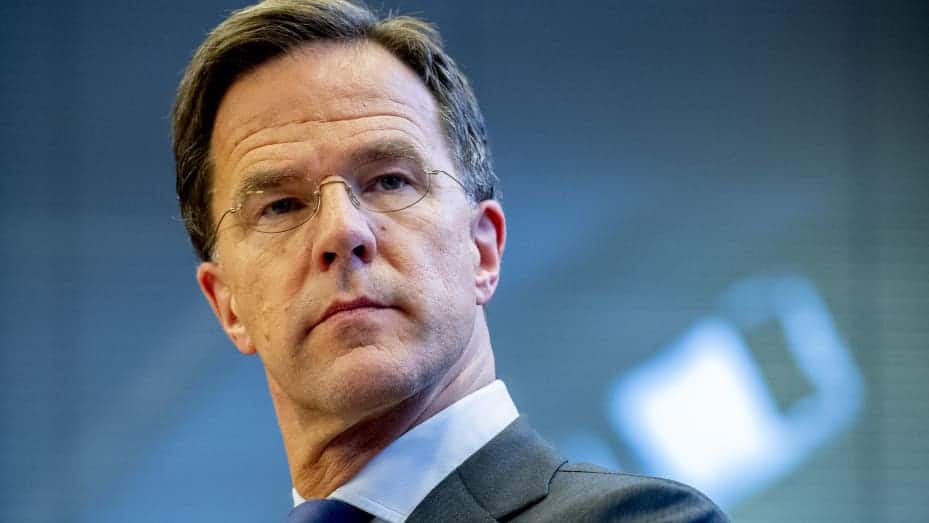After elections, the Dutch prime minister will leave politics

The longest-serving leader of the Netherlands, Mark Rutte, announced on Monday that he would leave politics following the collapse of his coalition government.
Following the collapse of the coalition in a dispute over immigration, Rutte, who has led four coalition governments since 2010, announced he would step down following elections anticipated in November.
“I have a personal statement to make. Over the past few days, there have been rumors about my motivation. The Netherlands is the only solution, Rutte told the legislature.
“I made the decision yesterday morning that I am no longer qualified to serve as the new list leader for the VVD (his center-right party).”
“I will leave politics after the elections, when the new government is sworn in.”
After Hungary’s Viktor Orban, Rutte is the second-longest-serving head of state in Europe. He added that this was his “personal assessment independent of the events of the past week.”
Rutte had stated in a press conference on Friday that he had the “energy” to run for a fifth term in office, but added that he would give the decision some thought first.
Rutte, who has earned the nickname “Teflon Premier” for his ability to avoid being stained by political scandals, declared at the time that he would serve in a caretaker capacity until elections, which won’t take place until at least mid-November.
But a vote in parliament scheduled for later on Monday will attempt to remove him from his position as interim premier.
A motion of no-confidence in Rutte has been submitted by two left-wing opposition parties as well as the extreme right party of anti-Islam leader Geert Wilders.
– Farmers movement –
According to Dutch media, the vote needs the backing of at least one of the four parties that made up Rutte’s coalition before it disintegrated on Friday.
In an attempt to unseat Rutte, GroenLinks (Green-Left) leader Jesse Klaver claimed that Rutte had allowed the government to fall “out of his own political interest.”
GroenLinks and PvdA (Labour party) have submitted a motion of no confidence against Rutte because of this, they said, adding that they wanted a stand-in premier until elections were held.
The controversial immigration speaker Wilders claimed that a “outgoing prime minister can also be forced to leave. We’ll give it a shot.
Following a scandal last year involving overcrowded migration centers, Rutte’s plans to tighten restrictions on reuniting families of asylum seekers led to the collapse of the previous coalition on Friday.
Rutte’s plan was vigorously opposed by ChristenUnie, a Christian Democratic party with 66 members.
According to Dutch media, Rutte gave the opposition parties a deadline to appear tough on immigration in order to appease hardliners within his own party.
At the party conference in June, according to Rutte himself, there were conflicts over immigration.
With a toxic mix of issues like migration, incensed farmers, and the cost of living, the elections for a post-Rutte era now appear to be some of the most divisive in a generation.
A new farmers’ party that won the election for the senate earlier this year and opposes EU-backed environmental regulations is hoping to build on its success.
Caroline van der Plas, the head of the Farmer-Citizen Movement (BBB), had resisted joining Rutte in a coalition.
Also Read: NLC meets with governments to discuss fuel subsidy remedies







